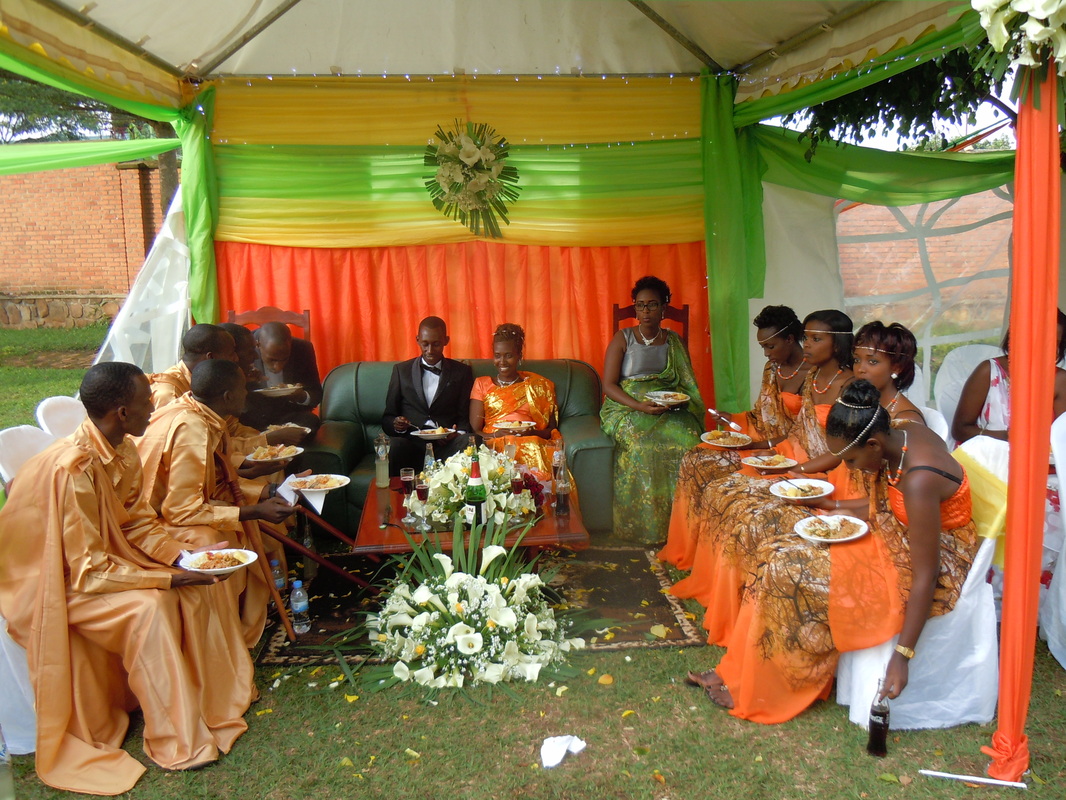Kenya was not a possibility and Theophile and I thought we would be in Muhanga teaching on January 25th. It turned out that Rwanda has "Community Day" (Rwandans do a community project in their neighborhood) on the last Saturday of every month. So, we were available. Previously, I had attended a Rwandan wedding -- only to discover I was in the wedding. For the dowry ceremony I was expecting a something short where the groom's family presents the dowry to the bride's family. We arrived at the house about twelve noon. Some relatives were there at the house. I was handed a plate of food. Some people came, some people went. Then it was time to leave. Nothing had happened.
We walked down the street to another location where the yard was prepared with flowers, tents, several hundred chairs, etc. Soon Theophile and I were seated. It began to rain with wind. Most people under the tents remained in their seats. The rained stopped. Things were cleaned up. The ceremony began. I discovered most of the guest related to the bride and groom and were seated across from each other (several hundred people - talk about a family reunion). A representative from the groom's side began to communicate with a representative from the bride's side. They went back and forth for about an hour until it was decided that a young man on the groom's side could marry a female from the other family. An old woman was offered. I discovered this was the normal process for the giving of the dowry. It was finally agreed that the couple could marry.
Next, they went through another process of deciding how many cows would be offered to the bride's family. I'm thinking, with five daughters I would be a rich man in Rwanda. Once they decided on the cows, there was another song and dance, literally, about naming the cows. Once the cows were named, the agreement was finalized and we all (several hundred people) ate a meal together. I was wondering how the bride's family was able to pay for all of this. Theophile explained that everyone there had given a monetary gift to the bride's parents.
It was about 6 PM now and Theophile and I needed to leave. Most people remained for another or so.
Now, that was a cultural experience! The actual wedding will take place next weekend.

 RSS Feed
RSS Feed